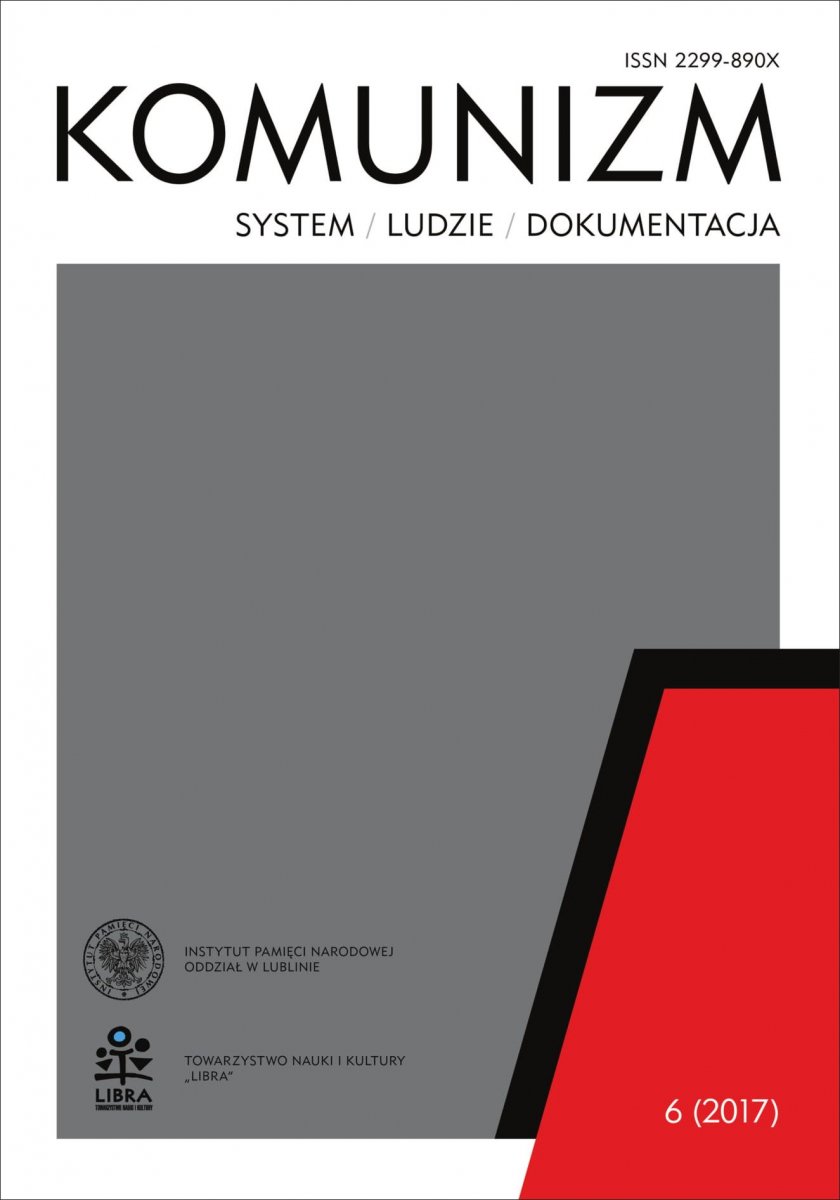Inteligencja jako warstwa społeczna w Polsce (od 1918 r. do współczesności)
Komunizm: System - Ludzie - Dokumentacja, Nr 7 (2018), strony: 15-26
Data publikacji: 2023-03-23
Abstrakt
During the interwar period, the intelligentsia, with its century-long tradition, was standing at the crossroads between the traditional concept of a national educated elite and the emerging middle class that, under Polish conditions, was primarily state-oriented (state apparatus, state and local government, state and state-dependent educational, social, and scientific institutions). The majority of the intelligentsia worked in the public, mainly state, sector. At that time, non-Polish intelligentsia fell into many separate categories in Poland. In practice, however, what occupied the foreground was the problem of the Jewish intelligentsia or the intelligentsia of Jewish descent, especiallythe Polish-Jewish intelligentsia – gravitating towards Polish culture while not detached from the familial environment. After the Second World War, some of the intelligentsia refugees remained in the West. Those who stayed in Poland tried to restore their lives and workplaces, but the period in which they could create new work and life environment was short and ended in 1947–1948 along with the official introduction of communist political principles which did not include an independent role for the intelligentsia. The attempt to build a new, party-submissive, intelligentsia in the Stalinist years failed in the wake of the political crisis following Stalin’s death and denunciation. As a result, despite intensified manipulation in the Stalinist period and later years, the development of the intelligentsia was only partially infected. Thus, it is possible – albeit with reservations – to speak about the existence of intelligentsia in the years of the Polish People’s Republic as a continuation of the pre-war social category. During the communist period, the intelligentsia and the authorities were inevitable partners. The author believes that the intelligentsia – understood as a social stratum or as an environment in which the “old intelligentsia” was the most significant authority – played a role in strengthening the factor of traditional national culture. Consequently, the official canon included many traditional elements of Polish culture, which was not the case in other countries of the Eastern Bloc.
 Język Polski
Język Polski
 English
English
 Русский
Русский
 Italiano
Italiano
 Français (France)
Français (France)
 Deutsch
Deutsch
 Українська
Українська
 Čeština
Čeština


 PDF
PDF
